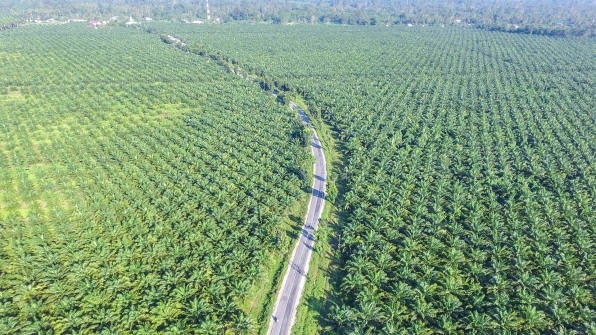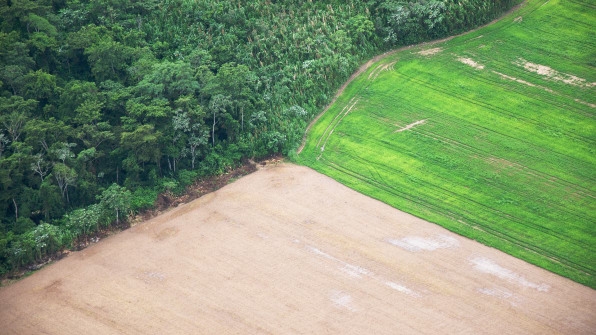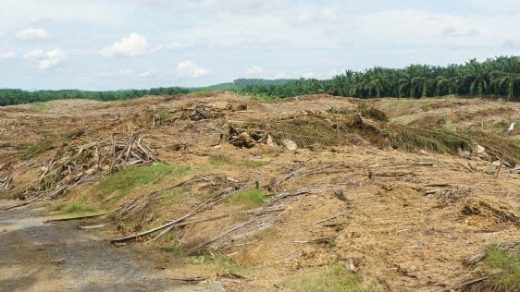How Real Are Companies’ Promises To Stop Deforestation?
In 2015, McDonald’s pledged to eliminate deforestation from its supply chain, finding better sources of soy to feed chickens, palm oil for making fries, and beef for Big Macs, all of which can involve the clear-cutting of forests to create more room for agriculture and livestock. Unilever–which owns more than 400 brands, including Ben and Jerry’s and Dove, made a similar pledge in 2010. HSBC, one of the largest banks in the world and a major funder of palm oil companies, adopted a zero deforestation policy in 2017 after a Greenpeace report linked it to the destruction of rainforests in Indonesia.
Over the last decade, hundreds of companies have made similar promises to reduce or eliminate the deforestation that they help cause. But a new study says that those pledges often don’t go far enough to have meaningful impact.
In some cases, the pledges are vague, and might not include a deadline for implementing an actual plan. In 2010, the Consumer Goods Forum, a group of 400 companies, committed to zero net deforestation by 2020; as of 2016, only a quarter of the member companies (such as Unilever) had an action plan and were implementing it to achieve that goal.

Some goals are less ambitious than others. “Zero net deforestation,” for example, means that a company can still cause deforestation in one location as long as they replant an equal number of trees somewhere else. Others simply say they won’t support illegal deforestation–but if clearcutting a rainforest doesn’t break a local law, it’s okay. In other cases, the companies that could have the most impact may not be the ones making the pledges. Timber companies are more likely to make pledges than beef companies, though beef is responsible for the majority of deforestation. Companies also often pledge to end deforestation for a particular product or region, rather than for all their products.
“Some of these companies make a kind of general commitment, but only implement it in regions that are kind of iconic or heavily scrutinized by the media or NGOs–typically the Brazilian Amazon,” says Eric Lambin, a professor of earth, energy, and environmental sciences at Stanford University and lead author of the study. “Then that same company, even though they have this broad commitment, still contributes to deforestation elsewhere–in the case of cattle, in Paraguay or Argentina.”
Companies that are motivated out of a concern for the long-term future of their supply chain, including candy companies reliant on the cocoa industry, are more likely to make progress, Lambin says. Those that are primarily motivated by wanting to protect their image in the eyes of consumers are more likely to set vague or unambitious goals. But consumers can also pressure companies to do more.
“I think it’s really essential that the consumers and NGOs that represent civil society go beyond these general declarations that are highly aspirational and say ‘okay, great, we like that, but in reality, how do you certify that it’s deforestation-free? What concrete action are you taking?’ I think that’s the only way for these companies to understand that just coming up with these vague statements is not enough to put them off the hook,” Lambin says.

Researchers are also carefully tracking companies to see if they’re making progress, using satellite data and trade data to link products to particular buyers. “I think it’s very important that this research is there, and that these companies realize that by 2020 or 2030 there will be some very rigorous scientific studies and NGO reports that are checking whether they hold to their commitment,” he says.
At least one other recent report, the Forest 500, suggests that most companies that were aiming to reduce deforestation by 2020 aren’t yet on track for their goals.
To truly succeed in ending deforestation–something that is critical both for fighting climate change and for maintaining biodiversity–the new study says that companies will need to do more. But government policies in countries with tropical forests also need to get stronger. In the past, Lambin says, some companies believed that if local governments were weak or corrupt, companies could control deforestation themselves. But corporate action alone isn’t enough. “It’s kind of naive to think that private governance can operate in parallel with no interaction with public policies,” he says. “You need a minimum action by the state, whether it’s national or sub-national government, for these commitments to be really effective.”
Fast Company , Read Full Story
(54)






